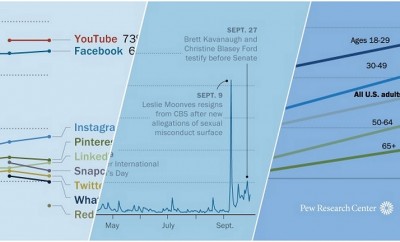
Many Tech Experts Say Digital Disruption Will Hurt Democracy
About half predict that humans’ use of technology will weaken democracy between now and 2030 due to the speed and scope of reality distortion, the decline of journalism and the impact of surveillance capitalism. A third expect technology to strengthen democracy as reformers find ways to fight back against info-warriors and chaos
The years of almost unfettered enthusiasm about the benefits of the internet have been followed by a period of techlash as users worry about the actors who exploit the speed, reach and complexity of the internet for harmful purposes. Over the past four years – a time of the Brexit decision in the United Kingdom, the American presidential election and a variety of other elections – the digital disruption of democracy has been a leading concern.
The hunt for remedies is at an early stage. Resistance to American-based big tech firms is increasingly evident, and some tech pioneers have joined the chorus. Governments are actively investigating technology firms, and some tech firms themselves are requesting government regulation. Additionally, nonprofit organizations and foundations are directing resources toward finding the best strategies for coping with the harmful effects of disruption. For example, the Knight Foundation announced in 2019 that it is awarding $50 million in grants to encourage the development of a new field of research centered on technology’s impact on democracy.
In light of this furor, Pew Research Center and Elon University’s Imagining the Internet Center canvassed technology experts in the summer of 2019 to gain their insights about the potential future effects of people’s use of technology on democracy. Overall, 979 technology innovators, developers, business and policy leaders, researchers, and activists responded to the following query:
Technology’s impact on democratic institutions/representation: Between now and 2030, how will use of technology by citizens, civil society groups and governments affect core aspects of democracy and democratic representation? Will they mostly weaken core aspects of democracy and democratic representation, mostly strengthen core aspects of democracy and democratic representation or not much change in core aspects of democracy and democratic representation?
Some 49% of these respondents say use of technology will mostly weaken core aspects of democracy and democratic representation in the next decade, 33% say use of technology will mostly strengthen core aspects of democracy and democratic representation and 18% say there will be no significant change in the next decade.
Συνέχεια ανάγνωσης εδώ
Plus





